How To Choose A Pool Cue? 4 Steps To Choose A Good Pool Cue
Pool cues, in addition to expertise, can greatly aid in achieving the desired outcome for the shot. Having a pool cue stick that you’re comfortable with is vital whether you’ve been playing for years or are just getting started to learn this basic guide to learn about pool. When selecting a pool cue, there are numerous aspects to consider: Budget, purposes, sizes… This article will show you how to choose a pool cue and four steps to get a good pool cue.
Step 1: Set budget

The price of a pool cue can range widely from 100$ to 1000$, depending on the quality and your preferences. Therefore, knowing how much you can spend on a pool cue will help you narrow down the options to find an ideal cue within your budget. As you may get interested, click here for affordable pool cues of Pearson Cues.
Step 2: Define where to use
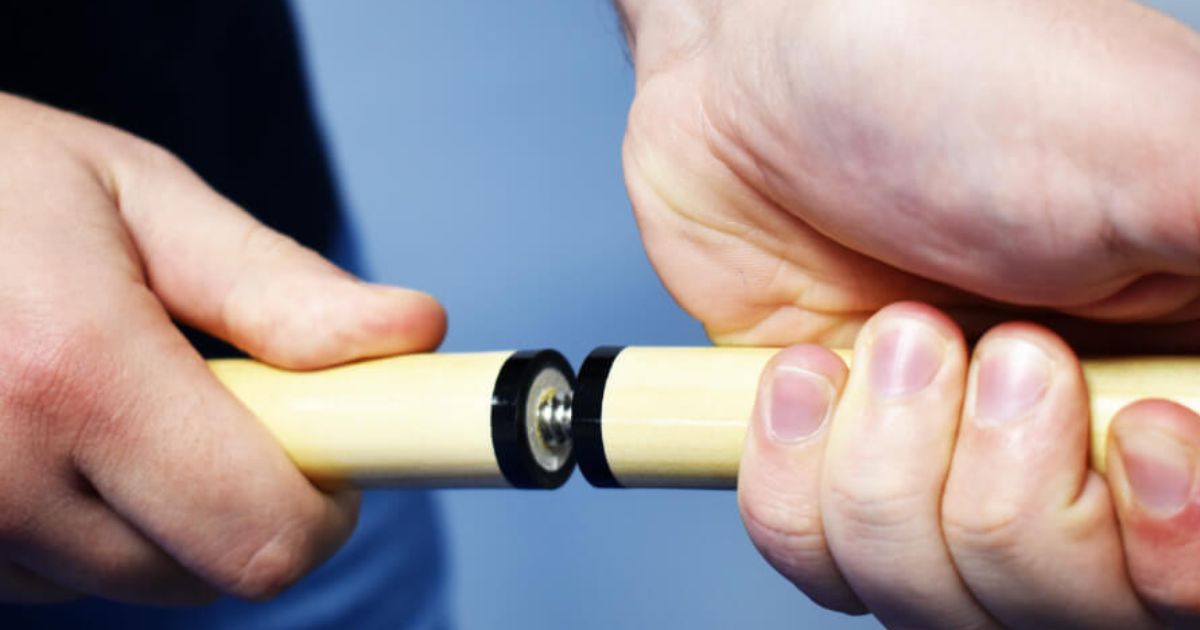
Depending on where you intend to use the pool cue, there are 2 main types that you may choose:
- One-piece cues: One-piece cues are designed as a whole piece so you can not fold them. It is inconvenient to bring a long stick somewhere or travel. But If you have a pool room at home and want to stock it with cue sticks, the one-piece cue is an excellent choice. Besides, it is also a little bit cheaper.
- Two-piece cues: If you intend to buy a cue for travel or competitive play, a two-piece cue is the best option. It is easier to store and carry with you when you play outside of your home. To play, simply screw the two pieces together.
In addition, pool cues deteriorate over time. They start to distort after a lot of use. This commonly occurs in the shaft or the thinner end of the shaft that makes contact with the ball. It’s difficult to utilize a one-piece cue that has warped or cracked, and repairing it isn’t always successful. However, you can change the shaft of a two-piece cue without replacing the base if the shaft begins to warp or crack. Therefore, professional players always prefer the two-piece cues.
Step 3: Choose the suitable pool cue sizes
How to choose a pool cue based on its size? Pool cue’s length, diameter, and weight can significantly influence your game result.
Cue length
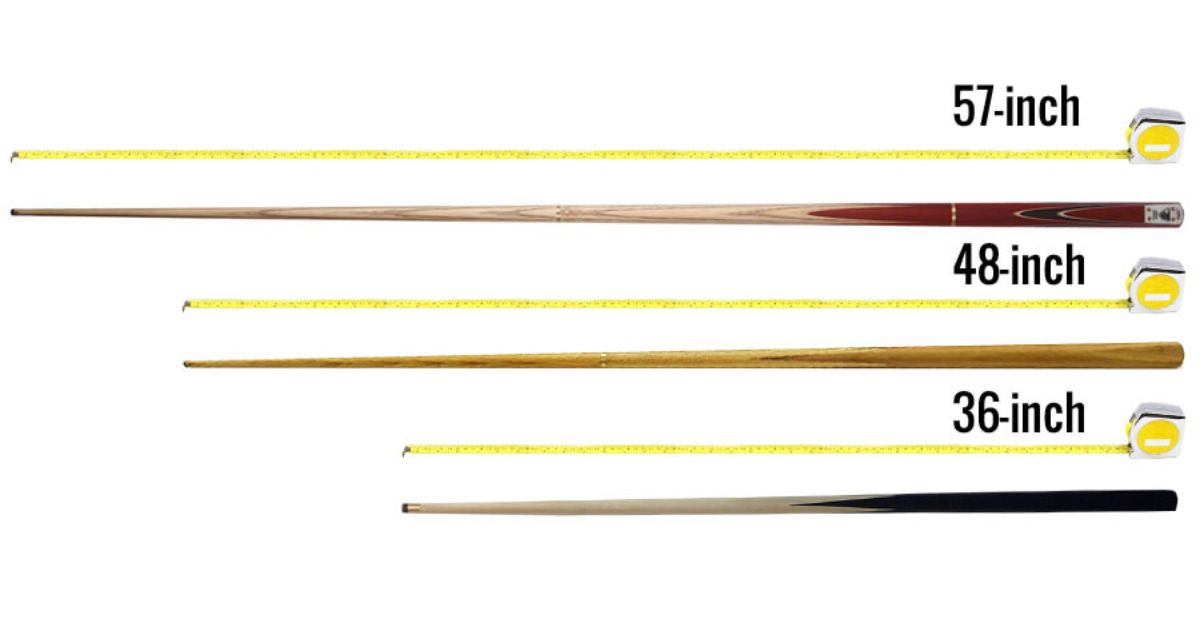
When purchasing a new pool cue for your game, the first thing you should look for is a completely straight pool cue with the proper length. It should be the same length as your arm to provide you with complete control over your game. A regular length billiard cue stick of 57-59 inches may be used by most people 5’8″ or taller. If you’re under 5’8″, a shorter cue may be preferable. And a cue longer than 59 inches might assist your game if you’re taller than 6’5″.
Cue tip Diameter
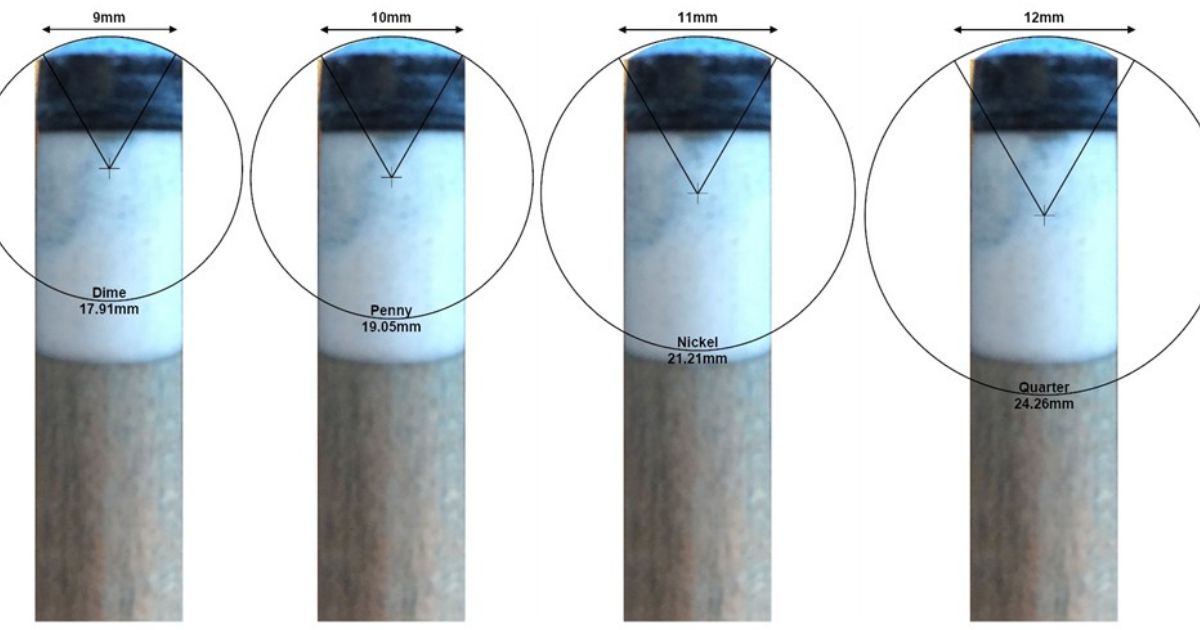
This is also an important factor to consider when choosing a pool cue. Cue tips exist in a variety of sizes, and the diameter of the cue tip can have a significant impact on your game. While pool cue tips with smaller diameters aid advanced players in putting a side-spin on the cue ball known as English, bigger diameter tips aid new players in pocketing the balls more readily.
Cue tips with big diameter (about 13 mm) are often suggested for newer players. The larger surface area of the cue tip might assist you in landing even the most difficult shots. As your pool skills improve, you can try smaller cue tips and work on your sidespin.
Cue stick weight
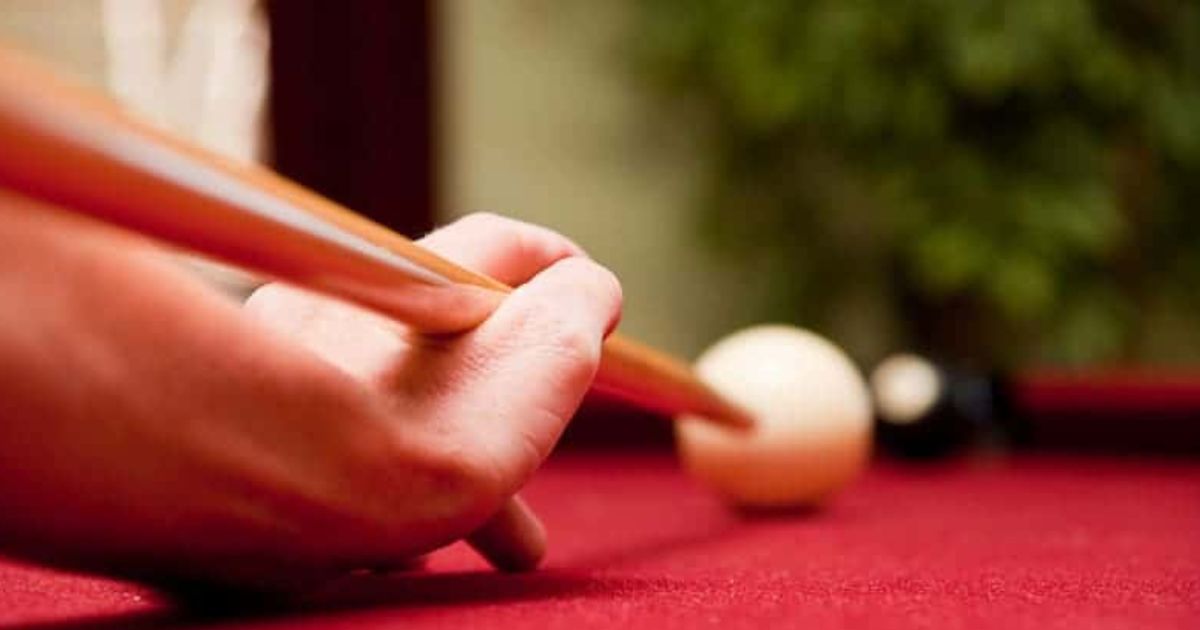
How you deliver a shot is influenced by the pool cue weights. The shaft (or bottom) of the cue stick carries the majority of the weight. Weights range from seventeen to twenty-one ounces in standard sizes. If you just have the money for one cue, go with an average weight. A heavier stick is more useful for breaking shots if you have more than one cue. Precision or combo shots can benefit from light signals. Whatever type of shot you’re playing, your personal choice should be the deciding factor in the weight of your pool cue.
Wrap types
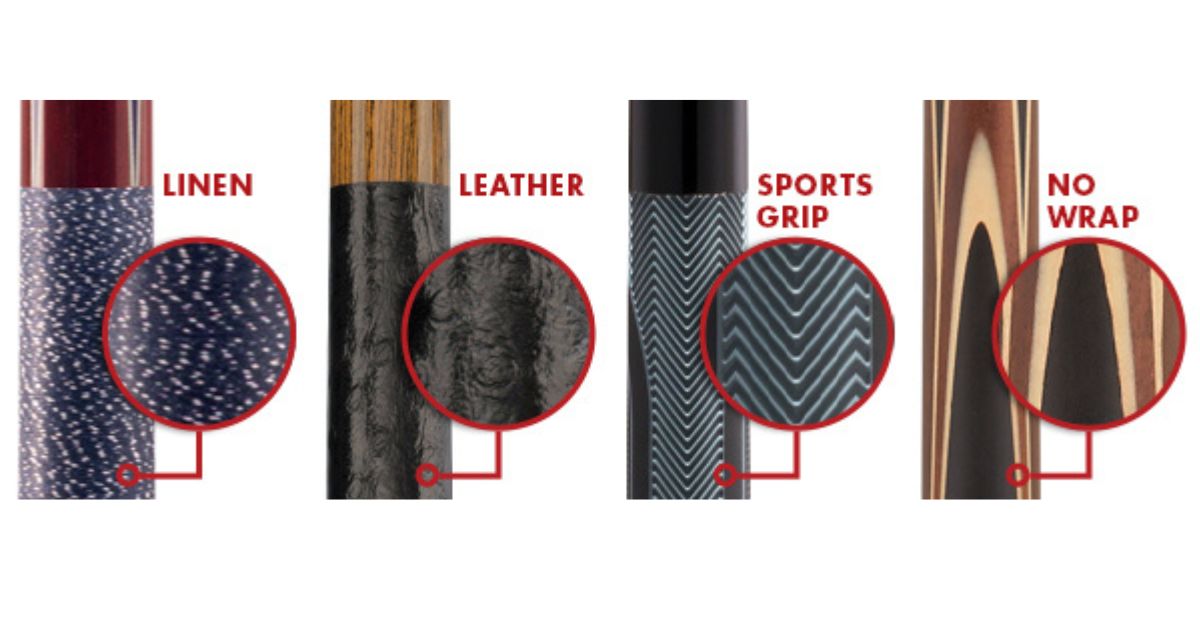
Choosing the right wrap type is also very important. Wrap materials can be leather, linen, or even no wrap. Keep in mind that you must hold the wrap portion of the cue with your rear hand, which means that it will come into contact with a considerable portion of your flesh.
A rubber wrap is usually your best bet if your hands sweat a much. They offer the most secure grip of the three alternatives. However, because they provide the most grip, they also convey the most force, making finesse shots more difficult. On the other hand, the leather wrap is also considered a good choice for the majority of players since it provides adequate grip to aid with sweaty hands and is also suitable for shots requiring a softer touch. Linen wrap provides the least amount of grip which is more suitable for players who need a lot of control over their shots.
Cue tip types
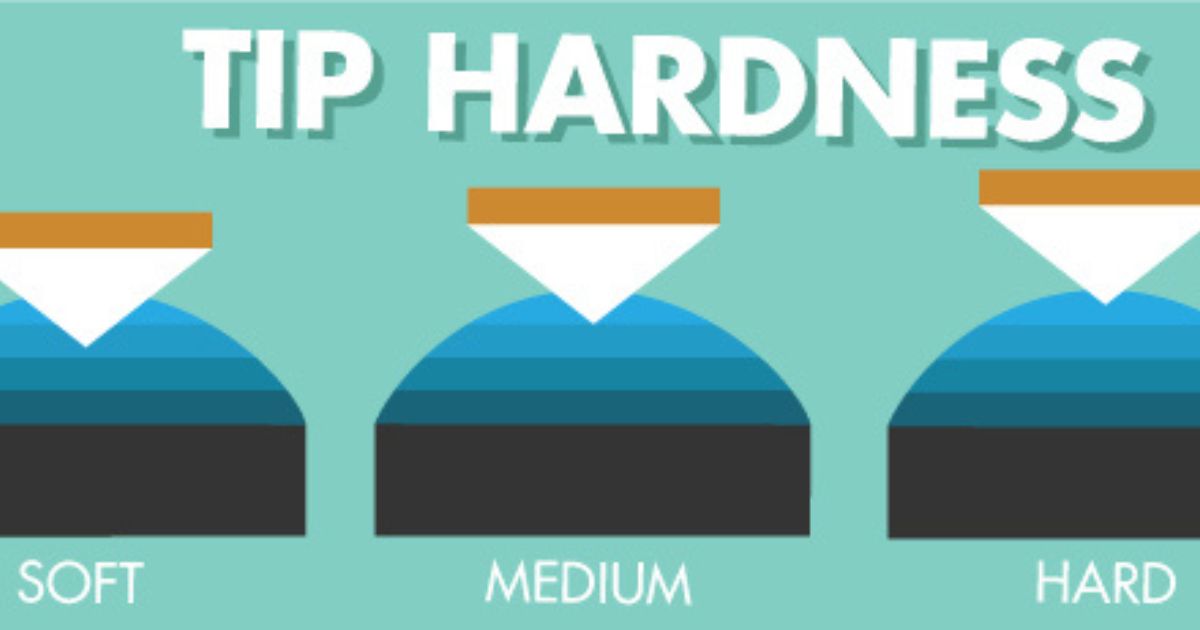
There are 4 types of tips to consider when choosing pool cue:
1. Soft tips
At impact, it absorbs more energy, forcing the tip to stay on the ball for a fraction of a second longer. The cue ball will have extra spin or “English” as a result of this. If you’re the type of pool player who likes to move the cue ball around the table, a soft tip is a way to go
2. Medium-hard tips
This cue tip type is the most common which provides players with a combination of cue ball control and consistency. In addition, medium-hard tips require less upkeep than soft tips.
3. Hard tips
It absorbs less energy at impact, causing the cue ball to spin less. Although hard tips last longer, need less maintenance and provide players with some regularity, they are more likely to create miscues because they absorb less energy at impact.
4. Phenolic tips
They’re made of carbon fiber and are as tough as a cue ball. This sort of tip is commonly utilized for breaking. Phenolic tips transfer the greatest energy on touch and require little upkeep.
Step 4: Testing

Make a testing shot
If you’re buying from a store with tables set up, you should try out the cue before purchasing it. Take four or five shots with the cue after getting into a decent shooting position. If the retailer doesn’t have tables set up or won’t allow you to practice, inquire about the return policy so you can try out the cue for a game or two before making a final selection. You won’t know if a cue is right for you unless you give it a try.
Listen to the vibration
Listen to the cue’s impact on the ball and feel the vibration in your hand. If you strike the ball and hear a loud click, you will almost certainly feel a strong vibration. Less vibration gives a quieter pop sound. When higher-end cues strike the ball, they generate a quiet pop sound, which translates to less vibration traveling through the stick and into your hand. Because vibration impacts the smoothness of your shot, you should look for a low-vibration stick.
FAQs
How much money should I spend on the cue?
A pool cue can cost from $100 to $1000 or even more depend on quality, material, and style. However, you can have a suggested range to consider. How to pick a pool cue with a small budget? You definitely can find some suitable options for yourself. A good pool cue for beginners will cost between $100 and $150. More advanced players, on the other hand, will have to spend more money to buy a nice cue that is appropriate for their ability level. A skilled player might expect to spend between $300 and $500.
Which cue material is the best?
Pool cue is popularly made from fiberglass or wood. Since these 2 materials have their own pros and cons, it all comes down to personal preferences. Wood pool cues provide a smoother stroke than fiberglass while fiberglass pool cues tend to be more durable. Fiberglass cues are extremely durable, do not warp, and have a unique appearance. It’s easy to see why they’re so enticing, especially because they’re usually less expensive than a good wood cue. On the other hand, wood cues are sturdy and long-lasting. If they are dented or nicked, they can be fixed. When going through your bridge hand and striking the cue ball, they provide the optimum feel. They can last a lifetime if properly cared for.
Conclusion
In conclusion, having a proper pool cue is critical in the game of pool. However, few people are totally aware of how to choose a pool cue. More significantly, a high price does not automatically imply that it is the best option for you. There are a lot of factors to learn in order to acquire a solid pool cue. Learn all the suggested steps, start to look for your own pool cue, always keep your pool cue in good condition and make the best shots.
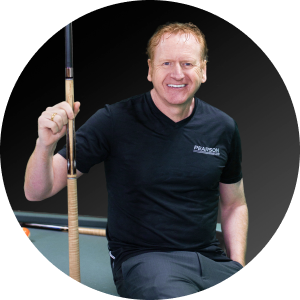
Dave Pearson
Dave Pearson, the world's leading pool entertainer, is renowned globally as the ultimate exhibition player.
Boasting 20 world records endorsed by the prestigious Guinness Book of World Records, Dave established a legendary history in the sport industry.
